Faculty of Law UNUD Holds Public Lecture and Public Discussion on the Urgency of Ratifying Government Regulations
Author: Made Aditya Pramana | Editor: FH UNUD UPIKS Team
Jimbaran-Badung, FLUNUD.ac.id - A Public Lecture and Public Discussion was held by the Faculty of Law UNUD on Monday (28/11/2022) with the theme "Urgency of Ratifying Government Regulations for Implementation of Regional Government Based on Village/Kelurahan Data" Precision and Government Regulations on Knowledge and Technology-Based Development Policy Guided by Pancasila are housed in the Widya Sabha Building, UNUD Rectorate. This activity was opened by the Dean of the Faculty of Law UNUD (Prof. Dr. Putu Gede Arya Sumerta Yasa, SH, M.Hum) and was attended by Deputy Dean I of the Faculty of Law UNUD (Dr. Desak Putu Dewi Kasih, SH, M.Hum.), Deputy Dean II FH UNUD (Dr. AA Wife Ari Atu Dewi, SH, MH), Lecturers, Undergraduate, Masters and Doctoral Students FH UNUD, Local Government Legal Department, Local Government Legal Bureau, Balitbang Bali and Law Faculty Lecturers and Students from all universities those in Bali.
The 3 speakers present were: members of the DPR/MPR RI (Dr. Reike Diah Pitaloka Tirtosudiro M.Hum), Deputy Chairperson of the Institute for Research and Community Service IPB University (Dr. Sofyan Sjaf, SPt, M.Sc) and Dean of the Faculty of Law UNUD facilitated by UNUD Faculty of Law Lecturer (Dr. Jimmy Z. Usfunan, SH, MH)
The material provided is related to data collection in Indonesia which is still partial in nature where there are differences from one ministry to another so there is a margin of error and data collection invalid. For this reason, a new method is needed, namely data collection called precision village data collection which involves village communities in Indonesia by conducting a bottom-up inventory. Precision Village Data is data that has a high level of accuracy and precision to provide an overview of the actual village conditions.
The data was obtained using the Drone Participatory Mapping (DPM) approach, an inclusive approach that places relations between people and technology by considering spatial dimensions, digital technology, citizen participation and censuses.
The data is collected, validated and verified by villagers assisted by parties outside the village, such as youths who have IT expertise. In order to support this precision village data collection, a legal instrument is needed in the form of a Government Regulation which must be ratified immediately so that village data collection based on technology and guided by Pancasila can be implemented immediately.
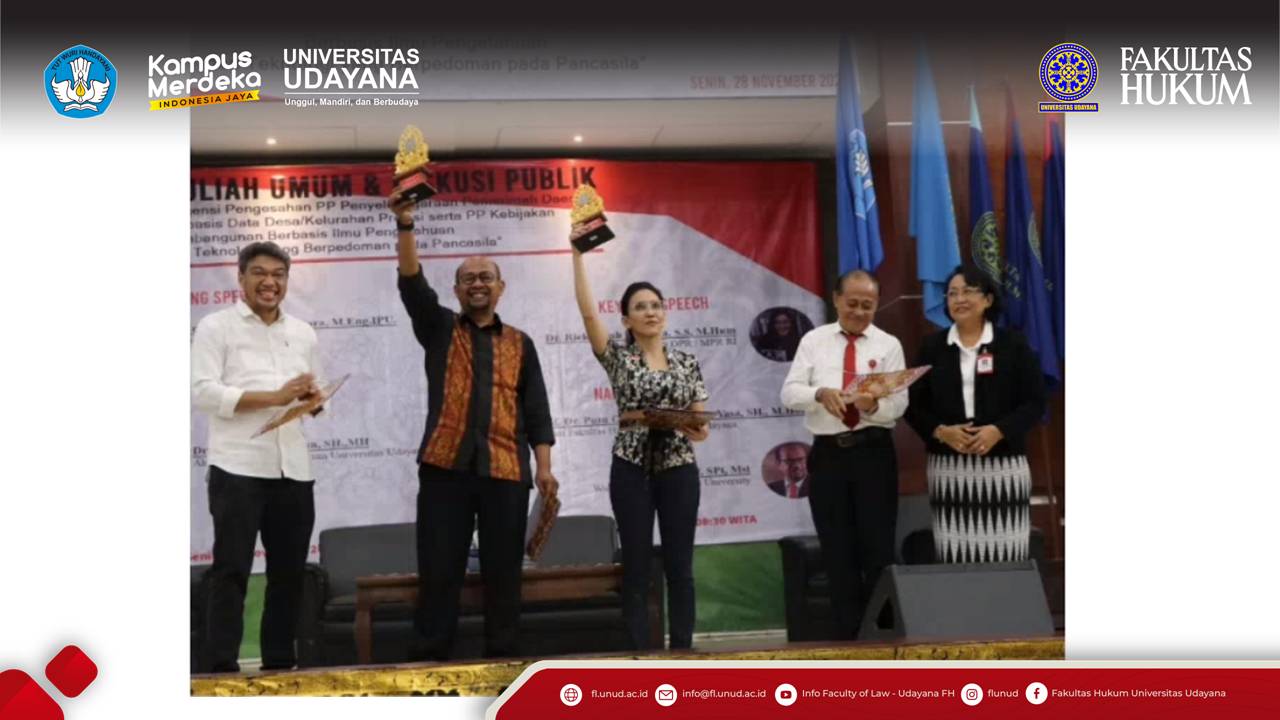
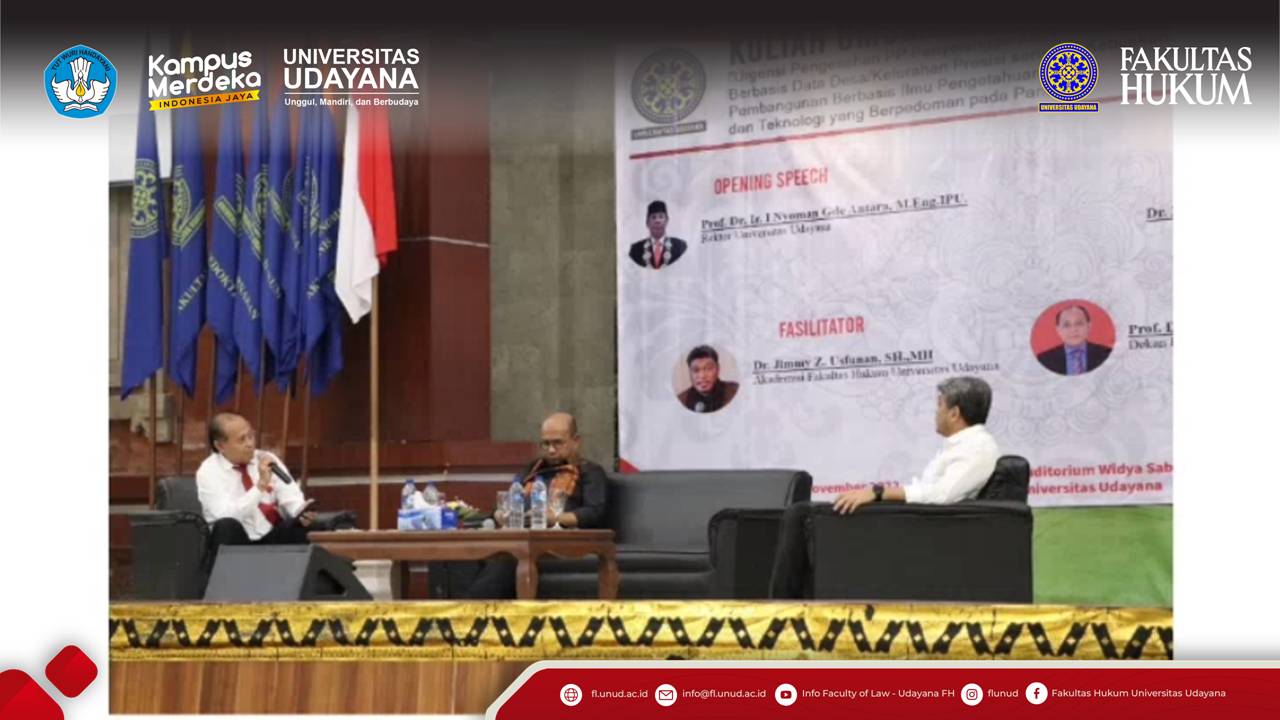
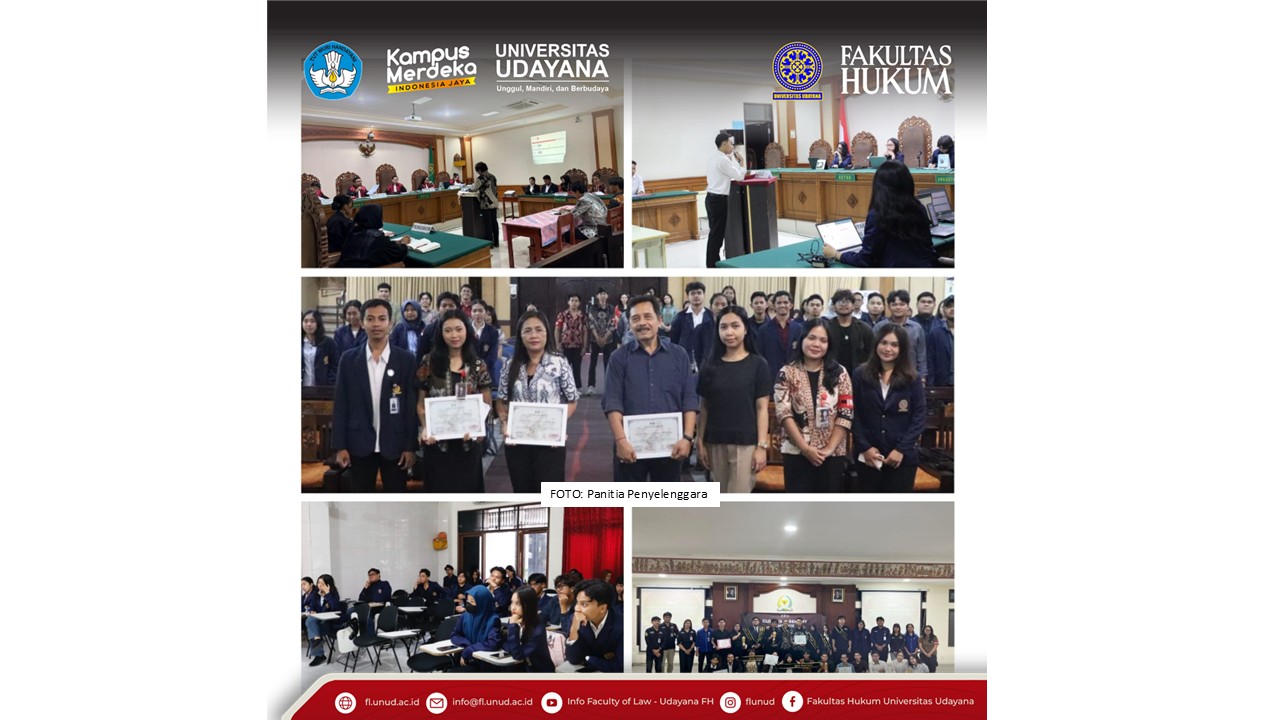
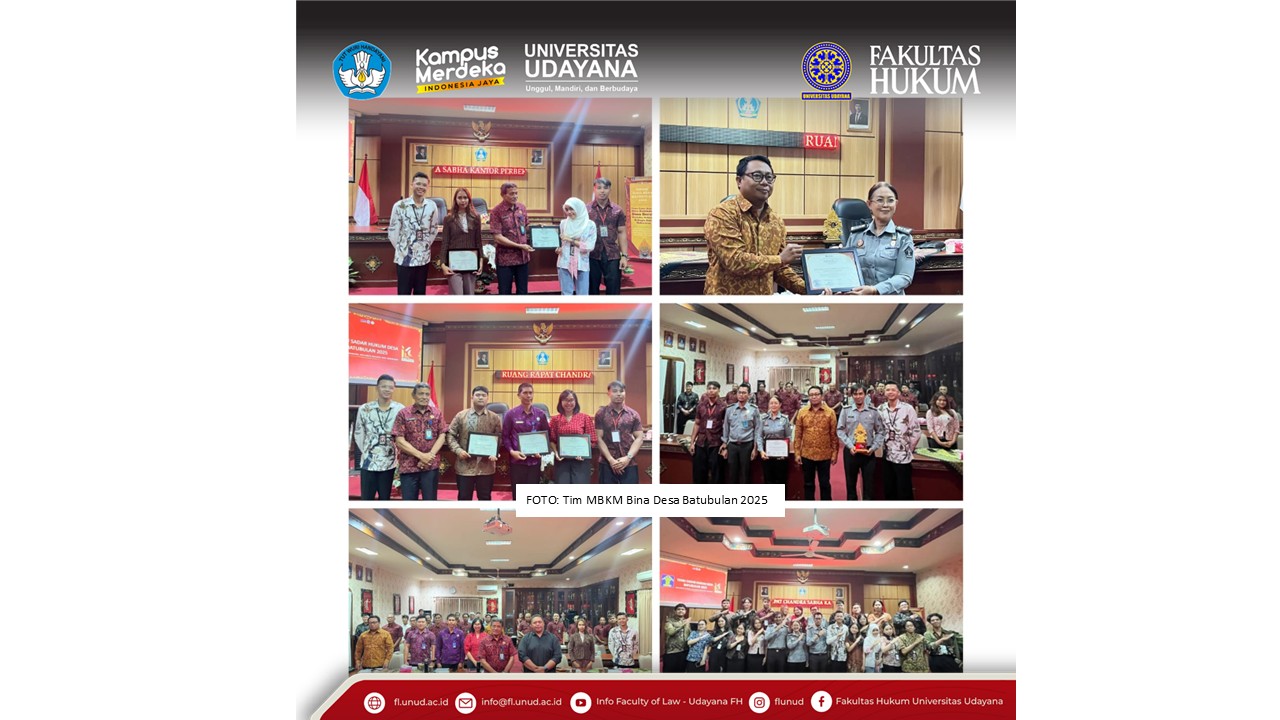
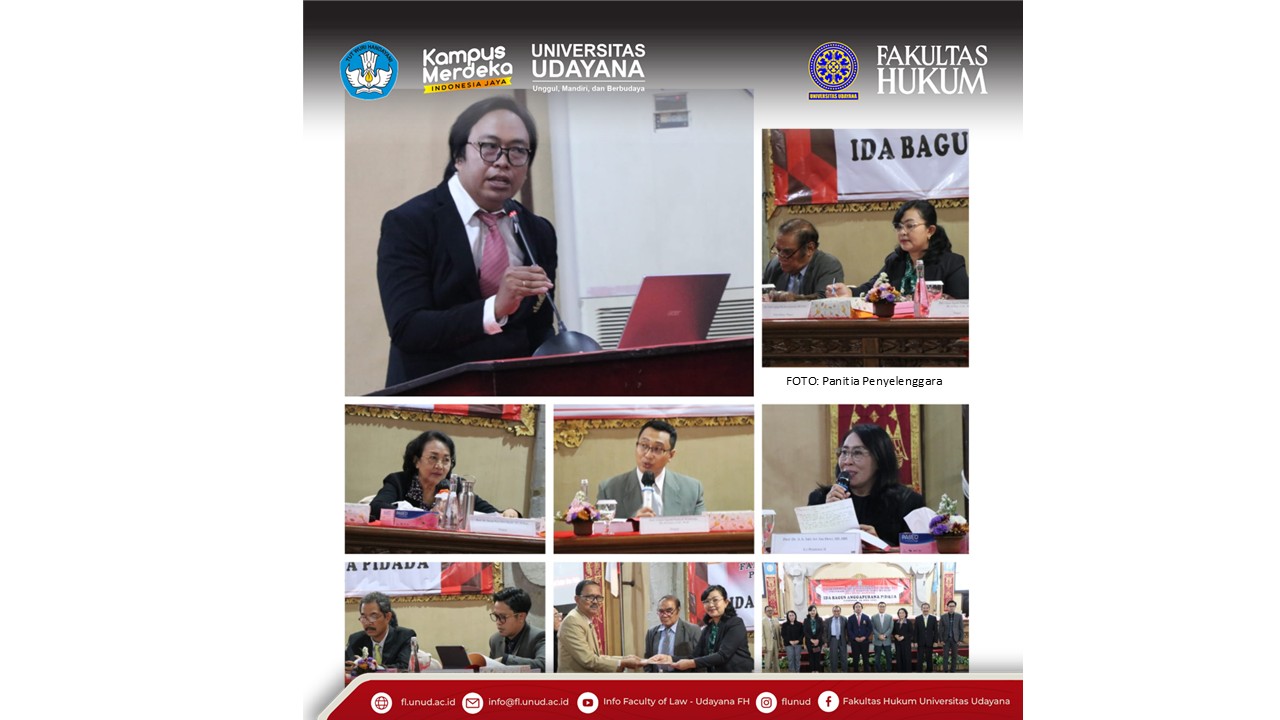
UDAYANA UNIVERSITY